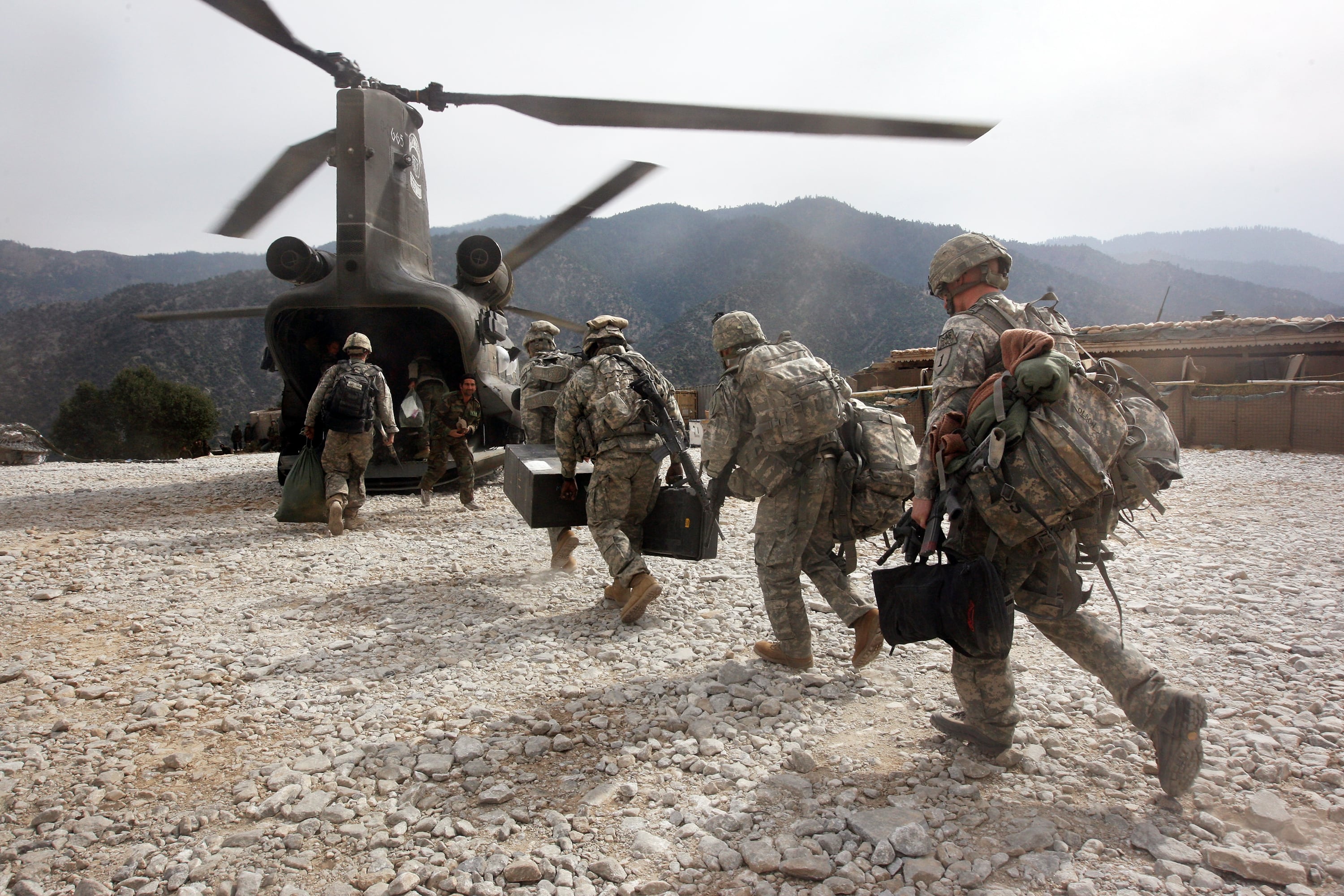They fought. They led. They planned. They bled. They lost a loved one to combat.
As the U.S. prepares to pull its troops out of Afghanistan on the orders of President Joe Biden, those with a direct stake in 20 years of warfare reflect on service and sacrifice in Afghanistan.
Joseph Votel
63. Twin Cities, Minnesota
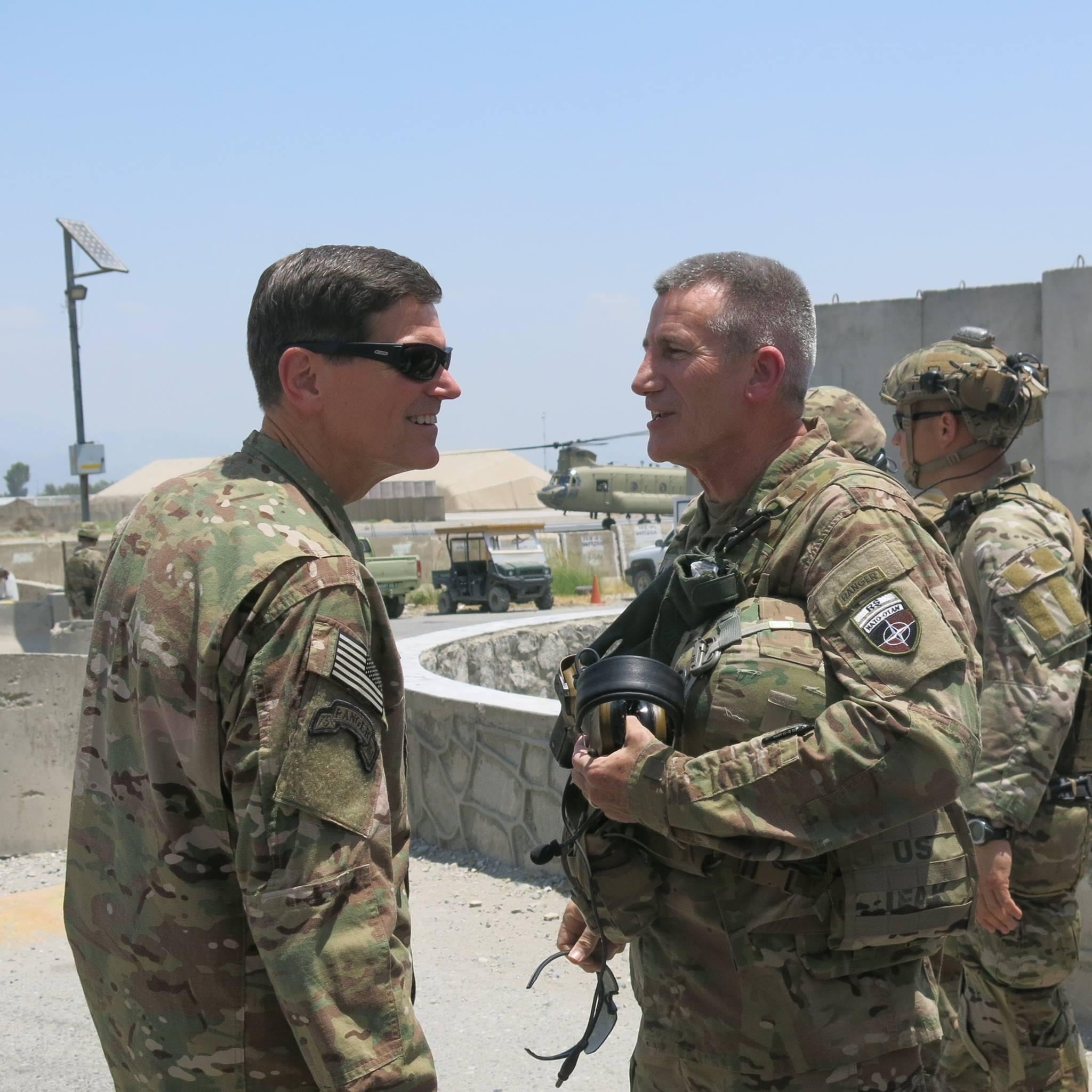
A retired Army general and former commander of U.S. Central Command and U.S. Special Operations Command, Votel was one of the first troops on the ground in Afghanistan in 2001 as commander of the 75th Ranger Regiment.
“I certainly wish this had ended differently,” Votel told Military Times recently, adding about Biden’s decision to withdrawal: “I lack insight into everything that is taking place — so I don’t want to make judgements about things I don’t know about.”
An ideal ending, said Votel, “would have been compelling the Taliban to enter into serious discussions with the Government of Afghanistan over political reconciliation.”
Leaving Afghanistan “is a very difficult decision,” said Votel, who oversaw various levels of operations there since shortly after the invasion — first as the 75th Ranger Regiment Commander, then as commander of Joint Special Operations Command, SOCOM and then at CENTCOM, where he oversaw the war efforts there from March 2016 to March 2019.
“I was always in favor of a conditions-based approach in Afghanistan — but those conditions cannot be achieved solely by military force. We were unfortunately never able to get the Taliban, and the Afghan government to an extent, to constructively and seriously enter into a diplomatic process. I believe our withdrawal will certainly have an impact on the Afghan people — they deserve an opportunity for peace and stability and I fear that they may not see it soon.”
Votel said that he is “hopeful that our military leaders and policy makers are looking at all options to address our interests in this area in accordance with the president’s apparent decision.”
As for whether Afghan forces will be able to defend themselves against the Taliban and elements of the Islamic State faction in Afghanistan, he thinks “the Afghan forces will have the ability to withstand for a period of time. Some will perform better than others — Afghan SOF is very capable and some of the ANA Corps are better than others. It all comes down to leadership.”
Should some element of U.S. forces remain at Bagram?
“Bagram or wherever,” he said. “I would agree a platform in Afghanistan would seem helpful to me.”
Having spent so much of his military career focused on Afghanistan, Votel has concern about the future of that nation and its people, especially those, like interpreters, who risked their lives to help America.
“I think one thing we should agree upon with respect to Afghanistan is to honor our commitment made under the Special Immigrant Visa programs that have been put in place and long supported by Congress,” said Votel. “I think this is a moral imperative for us. Those (and their immediate family members) who served our Government or military forces deserve the opportunity for this VISA to come to the United States. They have absorbed a level of risk which we will be unable to mitigate after our departure.”
It’s not a new concept, said Votel.
“We have done this in the past and it has been successful,” he said. “I grew up in Saint Paul [Minnesota], where our nation absorbed a large number of Hmongs. They too were very vulnerable after the Vietnam War ended and have assimilated quite well into our community. This should be a national priority now.”
More than 2,400 U.S. troops died supporting efforts in Afghanistan, something not lost on Votel.
“ We must be very careful to ensure that these sacrifices are not viewed as being made in vain,” he said. “They were not.”
Carlos del Castillo
61. Tampa, Florida
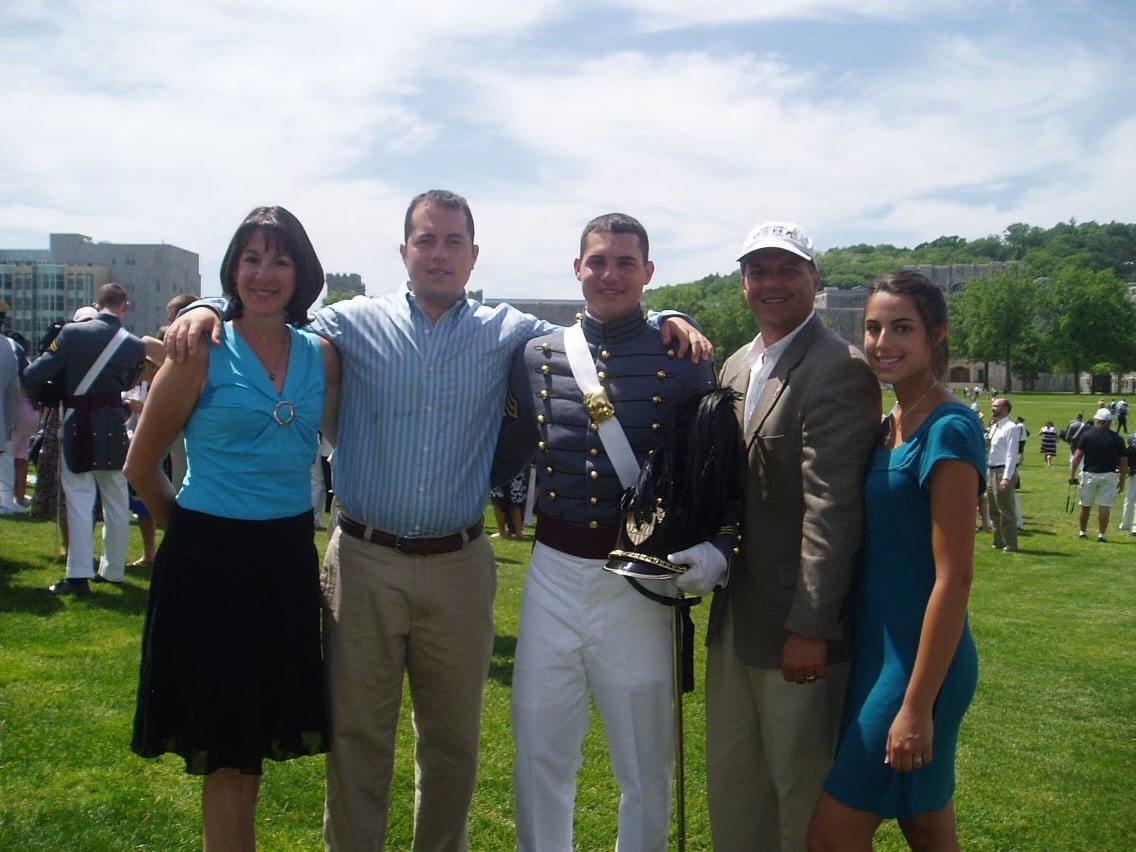
A business executive in Tampa, del Castillo became a Gold Star father on June 25, 2011, when his son, Lt. Dimitri del Castillo, an Army Ranger, died in Watahpur district, Kunar province, Afghanistan, of wounds suffered when enemy forces attacked his unit with small-arms fire.
Carlos del Castillo said that the announcement that Biden is bringing troops home from Afghanistan raises a lot of questions.
“You know, I am the last person that would want to see another soldier lost,” he said. “I have many friends in the military and I know they have endured much. I have more questions than comments.
“Is this a strategic decision or a political one?” he asked. “It may feel like a good decision today but will that still be the feeling five or 10 years from now? What do we gain by staying? Because in reality, we are so hog tied, we aren’t in it to win it? It’s either a war that we should win flat out or a social engagement dictated by people who want to play nice with people that want to end our way of life.”
And that raises another question, said del Castillo.
“So will we have to return?” he asked. “Should we even consider ever returning? How costly would reengagement be for us in terms of lives and treasure? Do ISIS and the Taliban also go home now?
“I realize we have had a tough slog over 20 years,” del Castillo said. “At least military families have. I wish for peace just like all U.S. citizens. I wonder if this action truly brings peace? And if so for whom? We know it won’t bring peace to the Afghan people under Taliban rule. I am no bleeding heart. But I do remember my son told me he felt sorry for the locals that just wanted to live in peace without having us or the Taliban around.”
Unlike most Americans, del Castillo doesn’t have the luxury of ignoring Afghanistan.
“We will go about our lives in our country as if all is well. But it is a hard pill to swallow, knowing what lies ahead for the people of that country,” he said. “This hits home as you would expect. I think of my son every day. I would give everything I own for five minutes with my son.”
Scott Neil
53. St. Petersburgh, Florida
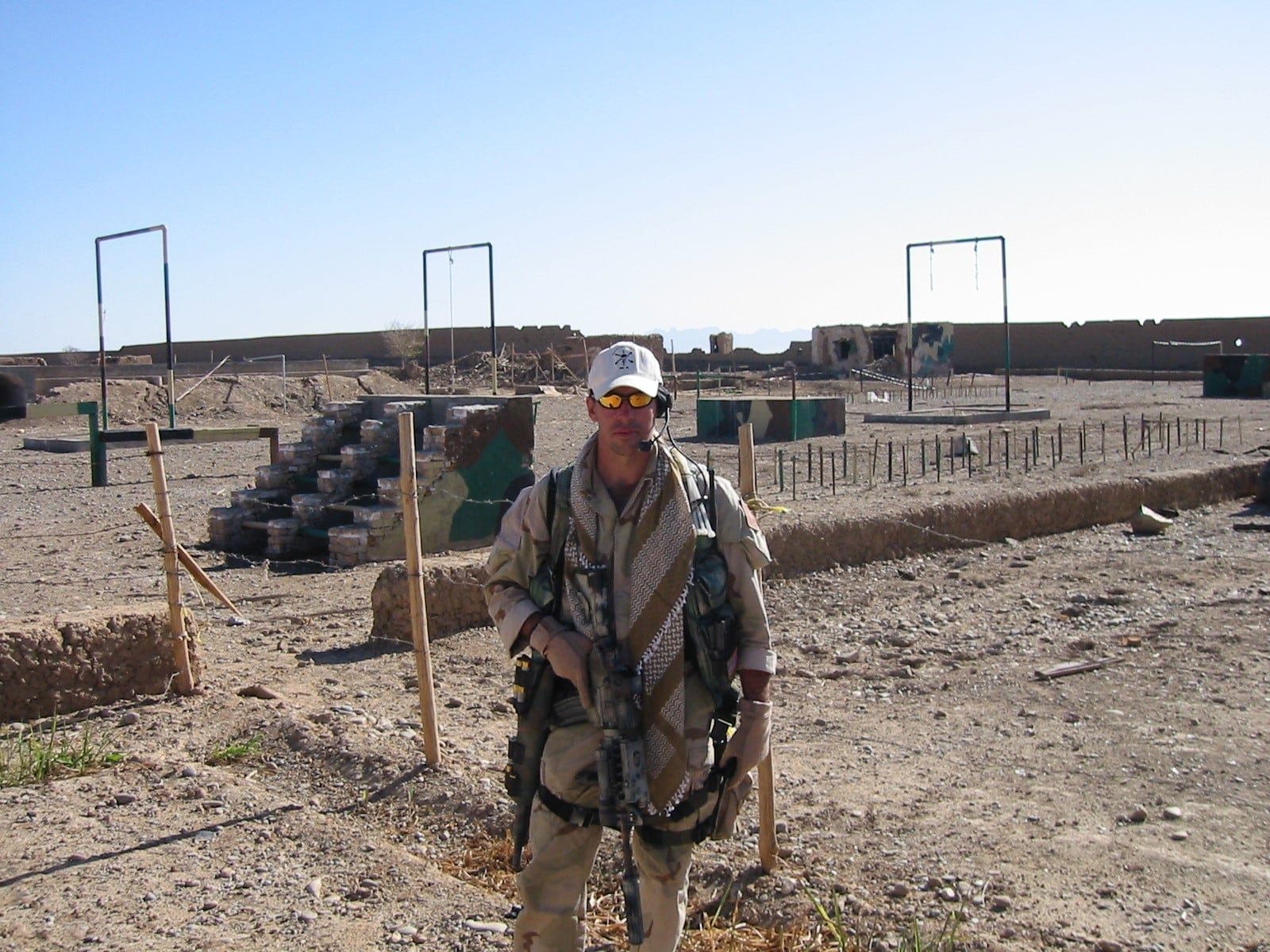
Neil is a retired Army master sergeant who was one of the first troops on the ground in Afghanistan after 9/11.
“We spend too much time asking what went wrong in Afghanistan instead of reflecting what went right,” he said. “Small teams, specially trained and regionally aligned who focused on by, with, and through. Captains and sergeants focused on making local solutions happen and the weight of the U.S. military supported their efforts. In the beginning we were successful as we freed the oppressed and together we came down from the mountains and attacked a common enemy who were in mechanized formations. "
Now a partner in the American Freedom Distillery, makers of Horse Soldier Bourbon, Neil said “it seems like things are now switched 20 years later. All the king’s horses and all the king’s men can’t put Afghanistan back together again.”
Looking back, Neil said one lesson of the war is “fight the war you are in and not the war you want. How could such a small interagency multinational team defeat a standing army as well as their frantically motivated cohorts in such a small amount of time with limited resources? It is an open question.
“It’s ok to come home,” he said. “Sometimes America has a hard time leaving.”
During another deployment at what would become the halfway mark of the U.S. military’s involvement in Afghanistan in 2011, Neil said he was astonished by the changes he observed.
“I returned to Afghanistan exactly 10 years later in 2011,” he said. “It was the height of the surge. The attitude of the population, the investment in blood and treasure, the lack of real understanding of Afghan culture was astonishing. Some of this country’s brightest at the time created a simple set of programs such as the Village Stability Operations which were having effects. Today it is all gone.”
With a son now in uniform, Neil said he hopes the military is ready for the next 20 years.
“My son loves serving his country today as much as I had,” he said. “I hope the American population admired his service as much as they did for us. And I hope he and the rest of our military is prepared for the next 20 years to fight and most importantly win. I’m not sure if we know what winning really looks like anymore.”
One of the first troops to fight the Taliban, Neil said that the Taliban and its cultural support cannot be ignored moving forward.
“The people of Afghanistan are both beautiful and simple,” he said. “They want to live a life like any other family anywhere in the world. They are brave and loyal to a fault at times. It is their solution for themselves that will ultimately win.
“You cannot have Afghanistan without the Taliban. It is like taking the Southern Baptist out of a small southern town.”
Scott Mann
52. Riverview, Florida
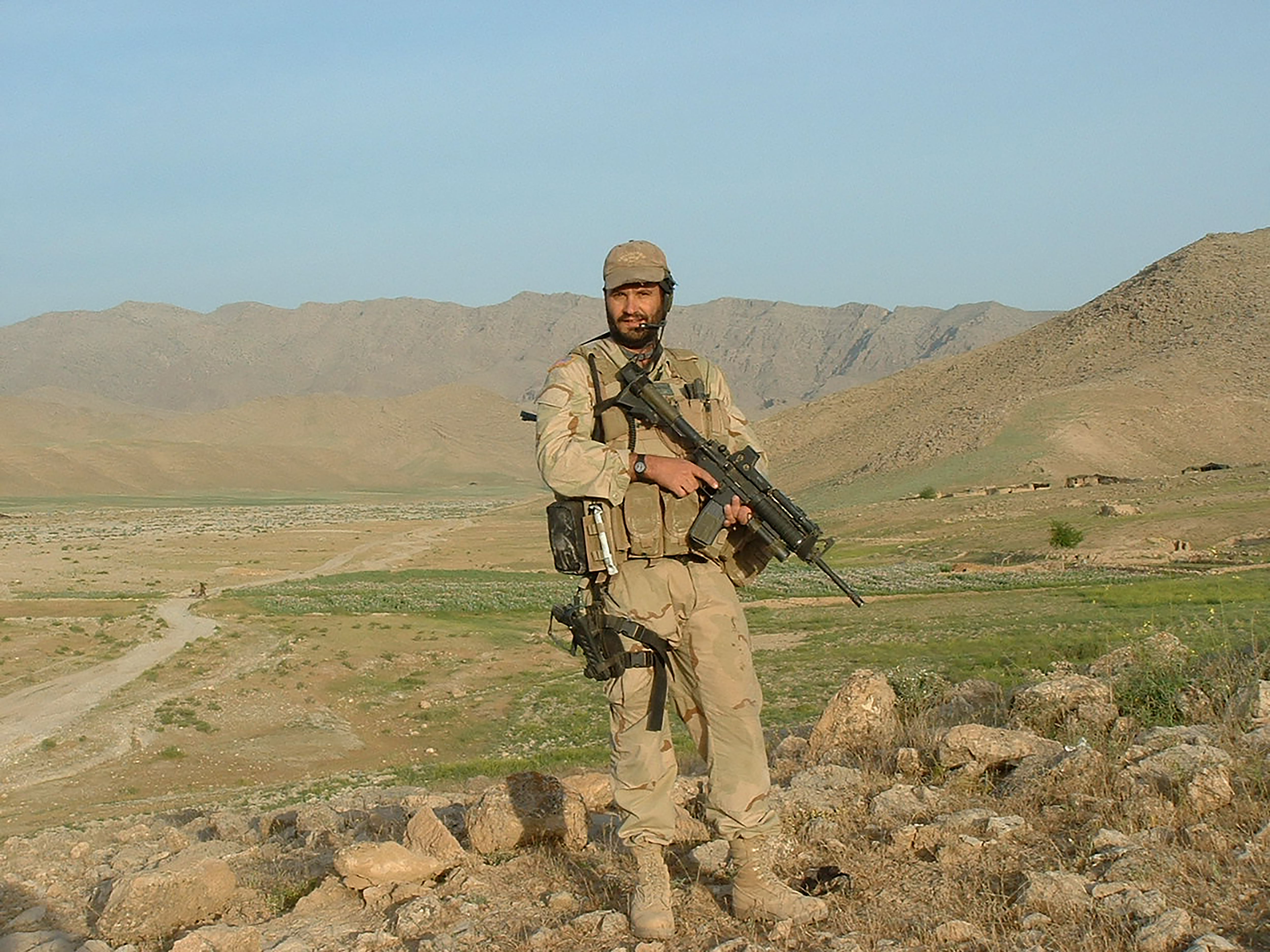
A retired Army Green Beret lieutenant colonel who served three tours in Afghanistan, Mann was one of the architects and implementers of the Village Stability Program, which focused on mobilizing local Afghans to fight back against Taliban insurgents through community engagement and capacity building.
“I have mixed feelings about the departure from Afghanistan,” said Mann. “On one hand, I glad we’re leaving because we’ve become an ‘occupier’ in the eyes of many Afghans because of failed U.S. policies and strategies by senior leaders who never took the time to really understand the land known as the ‘Graveyard of Empires.’ On the other hand, I’m saddened by the departure because I lost a lot of friends over there.”
Mann, who has written a play — Last Out: Elegy of a Green Beret — based on his experiences in Afghanistan, said there were positive moments during his time there.
“I also know that there was good work done there as well, mostly at local levels by warriors, diplomats, and development experts whose names we’ll forget over time,” he said. “In fact, I believe there were periods of time during the long war that we were on the right track of working with local Afghans to stand up on their own and to build capacity in that country over a long-term Foreign Internal Defense mission.”
But that effort in Afghanistan went off the rails, said Mann, so packing up and leaving is the right move.
“Until we gain the collective patience for that kind of work, similar to what we’ve done in Colombia, leaving is bittersweet, but necessary.”
And for Mann, it’s not just an academic discussion.
He has a son who followed his footsteps and is a platoon leader in the Army.
“I fully understand that my son will deploy into harm’s way,” said Mann. “But I make the assumption on good faith that he will deploy in missions that are well-defined, and strategically relevant to the nation. Afghanistan in its current form could not be further away from that.
“That said, I feel good that we won’t deploy him (or any other U.S. warriors) into a mission that is ill-defined and only focused on the short-sighted whims of politicians who are nowhere deep enough on the Afghan problem set.”
Lori Larsen
44. Tampa, Florida
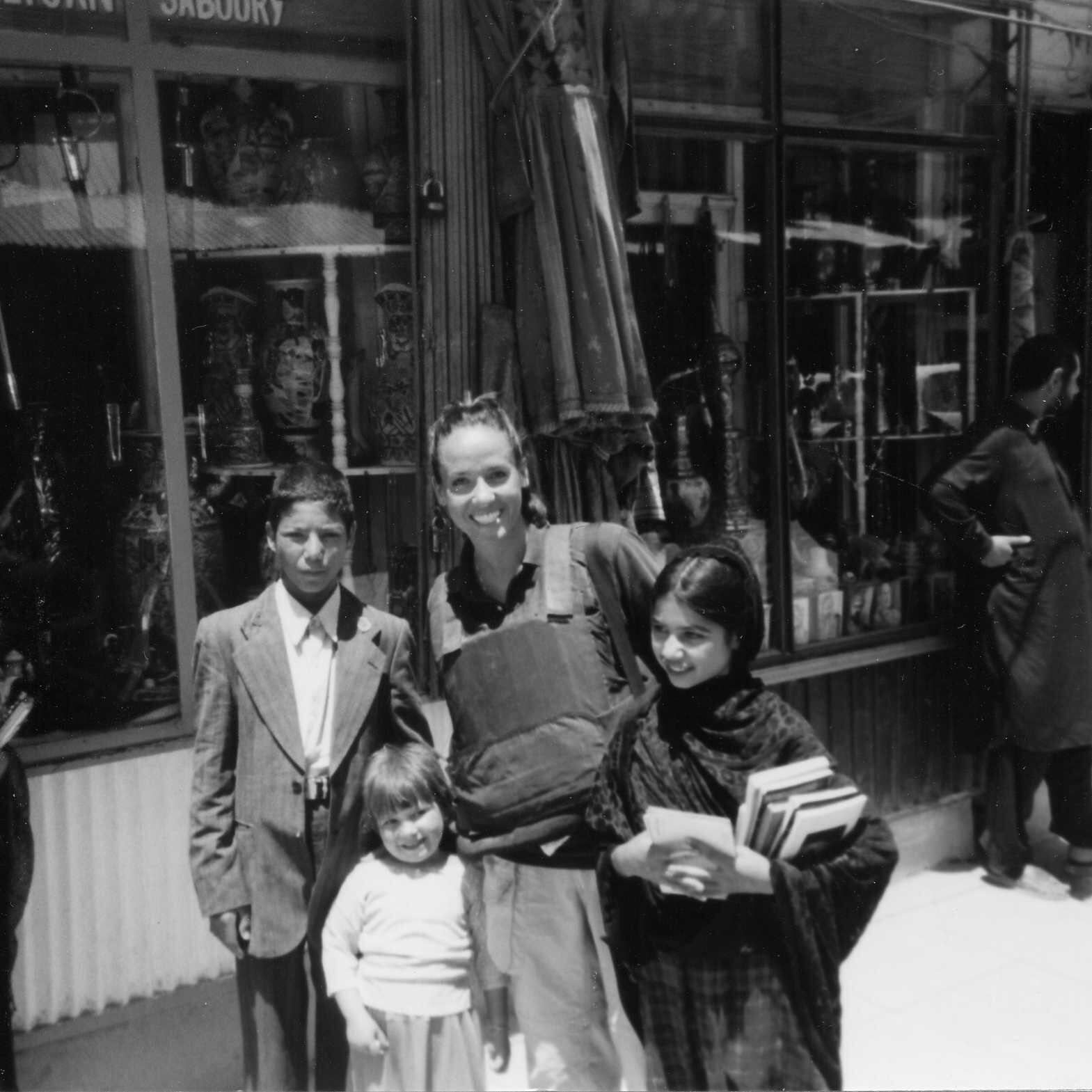
Larsen, who served in the Army for eight years, leaving as a captain, was an intelligence officer serving as an intel liaison in Afghanistan between conventional and SOF forces. She was deployed there in 2004 and 2005.
“I remember fondly my time in Afghanistan,” said Larsen, who now serves as the chief strategy officer for Celestar, a Tampa-based contracting firm. “If you remember, 2004 to 2005 was the year when they held the first Afghanistan elections. So I think it was probably what I’ll call the most peaceful time over the last 20 years. I think it was a time of anticipation and, and excitement because it was an opportunity to really move Afghanistan in a positive direction. I left there with an admiration and appreciation for the people of Afghanistan, all the people that I met were unbelievable, and just good-hearted people who deserve some peace and stability after generations of war and instability.”
Looking back, Larsen said that while she was in Afghanistan, she could not have imagined that nearly 16 years later, U.S. troops would still be there.
“No way,” she said. “Again, when I was there, it was sort of a very positive time of positive change. I knew it wasn’t going to be over within the next year or two years, but certainly I never imagined that it would be another 15 years and we’d still be in Afghanistan.”
Larsen said one mistake the U.S. made was “trying to perhaps set up a government, like we have here in the United States. That may not have been appropriate for the culture of the people of Afghanistan. And I think there’s also too many people within Afghanistan that have different ideas of what they wanted their future to be.”
The last two decades were not all about mistakes, Larsen said.
“There are good things that came out of our time in Afghanistan,” she said. “I think we were able to progress. I say we, but: There was some progress made in terms of freedoms for women and young girls able to go to school and perhaps some, some improvements in availability of health care, and that sort of stuff.
“I do think that there were some good steps made,” she said. “Our withdrawal marks the end of the United States’ longest war. And there’s certainly a lot of fatigue on the part of our service members and their families and also the American people. So I, I think the time is right. This provides an opportunity for the United States to invest time, energy and resources and some potentially more imminent threats to our national security.”
China and Russia, she said, are “more pressing threats to our national security than what’s happening in Afghanistan.
The outcome of the withdrawal, she said, “remains to be seen.
The recent Cost of War Report states that the Afghanistan conflict cost more than $2 trillion, and more than 240,000 lives, including about 2,400 U.S. troop deaths and another 20,000 injuries.
Was the U.S. involvement in Afghanistan worth it?
“If you ask somebody who’s lost a loved one, they will say it was not worth it,” said Larsen. “I think it remains to be seen what becomes of Afghanistan. Only then will we be able to reflect back and determine whether it was worth the sacrifices and the money spent.”
Ty Edwards
51. Tampa Palms, Florida
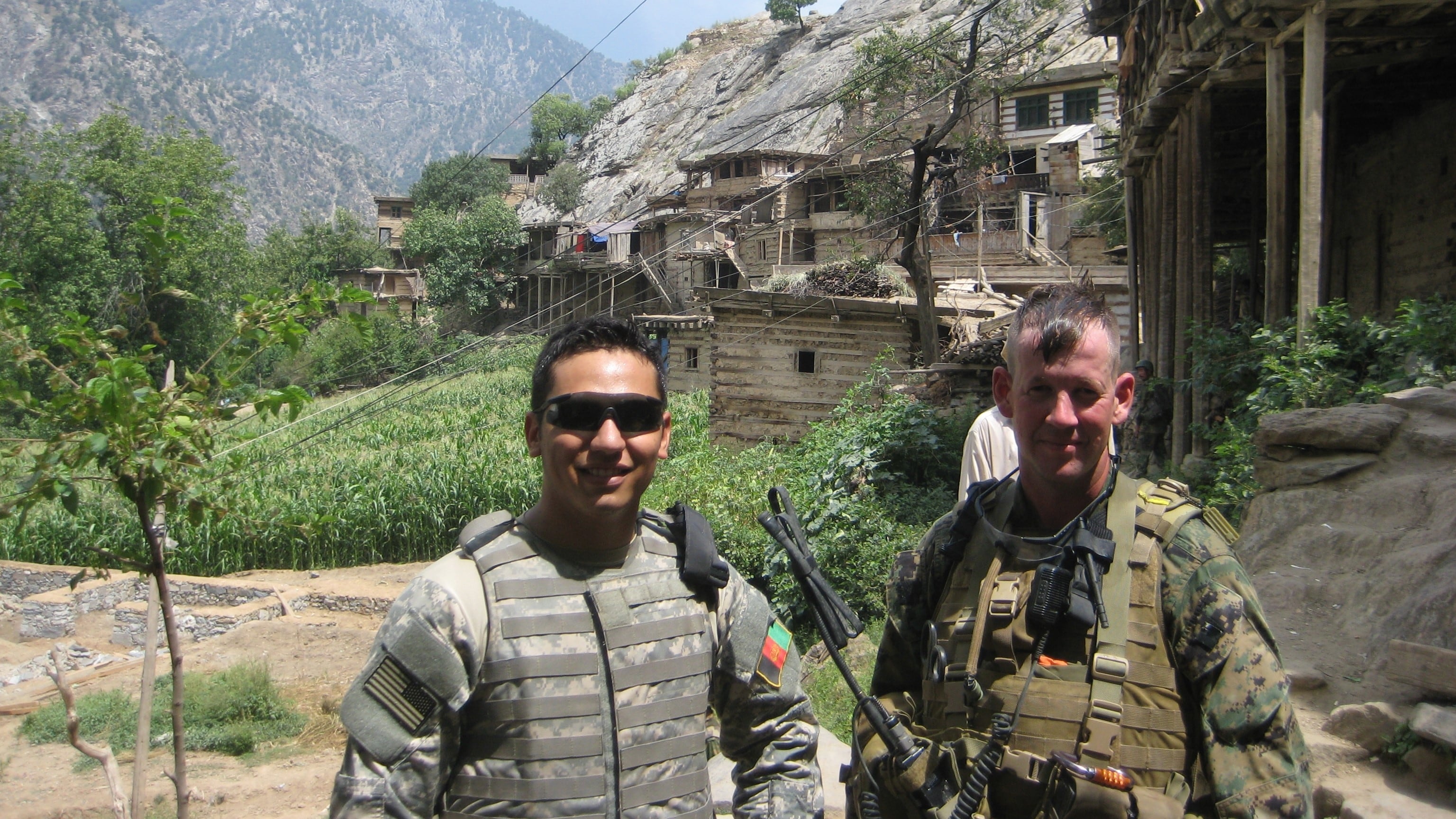
Edwards is a medically retired Marine lieutenant colonel who was severely wounded in October, 2008 during a firefight in Kunar province. He is now confined to a wheelchair as the result of his injuries.
“I have mixed emotions,” he said of the Biden announcement. “While I recognize that we can’t stay in Afghanistan forever, I would have liked to see some forces remaining to provide drone support to Afghan security forces and counter terrorism vice a total withdrawal of forces. We will lose a whole lot of intel resources in the region, I would guess.”
Edwards, whose life was saved by Afghan interpreter named Quadratullah Hakimi, worries about those left behind.
“I empathize with those loyal Afghans, partners who stood beside us through thick and thin,” he said. “I hope that some kind of power-sharing agreement can be reached on the part of Afghan government and the Taliban and that Afghanistan can find a peaceful resolution.”
One of more than 20,000 U.S. troops wounded during nearly 20 years of conflict in Afghanistan, Edwards said his sacrifice “was worth it.
“It was challenging but rewarding,” he said. “It was rewarding seeing our embedded training team work alongside the Afghan army. We had 18 Marines and three Navy Corpsman. Gunnery Sgt. Ron Stevens and myself were the only infantry Marines on the team. To a man, they all exceeded every expectation. We did not have any KIA but several were wounded.”
Edwards said he thought his team was making a difference.
“I also thought that we were making progress in our battle space, thanks in large part to 1/91 cavalry who had been in the area for over a year when we arrived,” he said.
Jason Criss Howk
48. Raleigh, North Carolina.

A retired Army major, Howk worked in several capacities with Afghan forces.
“I am not surprised by the Biden decision to withdraw all military forces, or to again unwisely announce a date for withdrawal,” he said. “This was his hope in 2009 and now he can carry it out. It is clumsy foreign policy, but the decision has been made. What matters is what happens next.”
Despite that, Howk said he is confident that Afghans can defend themselves.
“I’ve advised the Afghan government leadership (friends for over 15 years) and the ANDSF (who I have mentored and aided since 2002) that they needed to prepare for a full withdrawal since 2016.
“They have listened,” said Howk. “The ANDSF has been in the lead of combat operations since 2015 and they have professionalized way beyond any previous Afghan military. Afghans understand their security sector weaknesses and are addressing them. The ANDSF is confident they can win any future battle as long as Air Support and funding continues. With NATO and US promises that support for Afghan SOF, Air Force, and ANDSF salaries — the ANDSF are in a solid place.”
The Taliban, meanwhile, are merely pretending to have success, he said.
“The Taliban have used propaganda successfully to fool the world and especially the press into thinking they have increased their strength, ability to govern, and support from Afghans. The opposite is true,” said Howk. “The ANDSF will hold the line in battle and the Afghan people will rally behind the ANDSF as the Taliban likely use our clumsy withdrawal to ramp up their violence.”
The Taliban’s continued belligerence will backfire on them with regard to Pakistan, said Howk.
“An ISI general admitted to me at CENTCOM just before the Doha agreement that Pakistan would eventually have to jettison the Taliban to focus on their own existential threat—the failing Pakistan economy,” he said. “I predict after a few more years of Taliban failures to take and govern any large population center, the Pakistanis will lose interest in their proxy and find a better way to come to terms with a stable Afghanistan—or interfere in a new way. "
The same is true for the Afghan people, he said.
“I predict a bloody insurgency will continue until the Taliban are convinced to get serious in peace talks,” said Howk. “Every day the Taliban fight the Afghan people, the Afghans get more unified behind their republic and the Taliban lose more future leverage in peace talks. This is the best Taliban window to safely exit the war they started against the Afghan people on behalf of Pakistan. Afghans are unphased by our withdrawal because they knew it was coming. Now they will be free to act on their own to finish the war.”
Any suggestion of Taliban supremacy is smoke and mirrors, said Howk.
“I think the big story is how the world was duped by the Pakistan/Taliban team to think the Taliban are some unstoppable force that can take and govern territory at will,” he said. “They have not done so during a continuous withdrawal of international forces since 2014.”
Howard Altman is an award-winning editor and reporter who was previously the military reporter for the Tampa Bay Times and before that the Tampa Tribune, where he covered USCENTCOM, USSOCOM and SOF writ large among many other topics.
